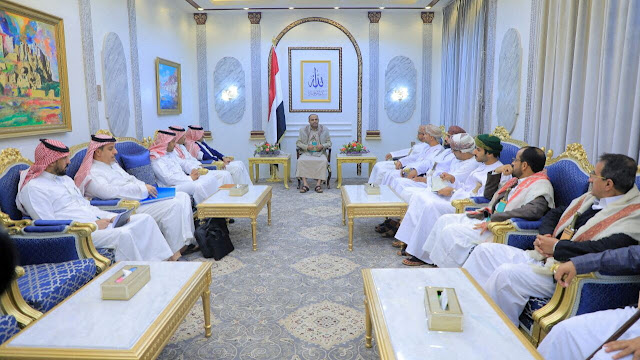What negotiations have taken place between the Saudi-backed exile government and the Houthis in Yemen?
Introduction
The ongoing efforts to resolve the devastating conflict that has engulfed Yemen since 2014 have centered on the negotiations between the Yemeni Houthis and the Saudi-supported government in exile. Understanding the political dynamics and possible paths to peace in the region requires these negotiations. The major negotiations, their outcomes, and their broader repercussions for Yemen and the Middle East are the subject of this article.
History of the Yemeni Conflict
The Houthi movement, officially known as Ansar Allah, seized control of Yemen's capital, Sanaa, in 2014, triggering the conflict known as the "Yemeni Civil War." In 2015, as a result of this, a coalition of Gulf states led by Saudi Arabia supported Yemen's internationally recognized exiled government. Millions of people have been forced to flee their homes and are in desperate need of assistance as a result of the war.
Initial Agreements and Negotiations
The 2015 Geneva Peace Talks In June 2015, the first significant negotiation attempt was made in Geneva. The goal of these talks, which were helped along by the United Nations, was to get the warring parties to agree on a ceasefire. However, due to mutual distrust and terms disagreements, particularly regarding the Houthi forces' withdrawal from key areas, the negotiations ended in failure.
Peace Talks in Kuwait (2016)
Kuwait hosted yet another significant negotiation session in 2016. Over the course of more than three months, intense discussions were held regarding the implementation of a framework for a comprehensive peace agreement and the formation of a unity government. The talks ended without a final agreement, despite initial optimism, primarily due to disagreements regarding power-sharing arrangements and security issues.
The 2018 Stockholm Agreement The December 2018
Stockholm Agreement was one of the most significant negotiating milestones. There were a few important parts to this agreement: -Hodeidah Ceasefire]: In the port city of Hodeidah, a crucial entry point for humanitarian aid, both sides agreed to a ceasefire. - "Prisoner Exchange": The parties agreed to a massive prisoner swap that was partially carried out over the following months. Taiz: An agreement to open humanitarian corridors and de-escalate fighting in the city of Taiz. The Stockholm Agreement has been implemented slowly and with many violations. However, it was a significant step toward restoring trust between the antagonistic parties.
The 2019 Riyadh Agreement
The Yemeni government and the separatist Southern Transitional Council (STC), which was also involved in the conflict, signed the "Riyadh Agreement" in November 2019. Even though the Houthis were not a party to this agreement, it dealt with another important aspect of the complex conflict in Yemen. The goal of the agreement was to bring stability to southern Yemen and make it easier to present a more united front in future negotiations with the Houthis.
Stalemates and ongoing negotiations UN-Facilitated Discussions (2020-2021)
Through a series of talks in 2020 and 2021, the United Nations continued its efforts to mediate the conflict. In an effort to restart the peace process, Special Envoy Martin Griffiths and Hans Grundberg, his successor, have met numerous times with the Houthis and the Saudi-backed government. These efforts have centered on reopening Sanaa Airport, securing the uninterrupted flow of fuel and goods through Hodeidah Port, and achieving a nationwide ceasefire.
Oman's Role as a Mediator
Oman has facilitated backchannel communications between the Houthis and Saudi Arabia in a quiet but significant way. De-escalating tensions and opening the door to more formal negotiations have been made possible by Omani mediation efforts.
Obstacles and Challenges
Deficit in Trust
The deep mistrust that exists between the Houthis and the Saudi-backed government is a significant obstacle to successful negotiations. Skepticism has persisted on both sides due to previous experiences with failed agreements and ongoing hostilities.
Crise Humanitarian
The ongoing humanitarian crisis adds complexity to the situation. The two sides have involved admittance to philanthropic guide as a negotiating concession, confusing dealings and demolishing the predicament of millions of Yemenis. Regional Dynamics
Yemen's conflict is more than just a local conflict;
It is also deeply intertwined with regional geopolitics. Saudi Arabia's determination to counter Iranian influence in the region and Iran's support for the Houthis have added layers of external pressures that influence the negotiation process.
Future Opportunities
Pressure from All Over
The United States of America and the European Union, among other international actors, keep pushing for a diplomatic solution to the conflict. To get both parties to sit down and negotiate, diplomatic engagements, humanitarian aid conditionality, and sanctions are being used. Grassroots Peace Initiatives
Additionally, grassroots and local initiatives are essential. In Yemen, civil society organizations are promoting a bottom-up approach to conflict resolution by advocating for community peace and reconciliation.
FAQ on Negotiations between Yemen's Houthis and the Saudi-supported Government in Exile
Q1: What are the main parties involved in the Yemen negotiations?
A1: The main parties involved are the Houthi rebels and the Saudi-supported government in exile of Yemen.
Q2: What is the primary goal of the negotiations between the Houthis and the Saudi-supported government?
A2: The primary goal is to reach a peaceful resolution to the ongoing conflict in Yemen.
Q3: Where have the negotiations between the Houthis and the Saudi-supported government taken place?
A3: The negotiations have taken place in various locations, often facilitated by international mediators, but specific recent locations are not detailed in the provided text.
Q4: What has been the role of international mediators in these negotiations?
A4: International mediators have facilitated discussions and helped bring the conflicting parties to the negotiating table.
Q5: Have there been any significant outcomes from the negotiations between the Houthis and the Saudi-supported government?
A5: The text does not specify recent outcomes, but historically, these negotiations aim to establish ceasefires and agreements to end the conflict.
The conclusion
The complex and ongoing negotiations between the Houthis in Yemen and the exile Saudi-supported government are ongoing. Even though significant agreements like the "Stockholm Agreement" and the "Riyadh Agreement" have laid some groundwork, making peace that lasts for a long time is still a very difficult task. For any chance of bringing an end to this long-running conflict, genuine efforts from the parties in conflict, ongoing international support, and regional mediation are necessary.



.jpg)



0 Comments